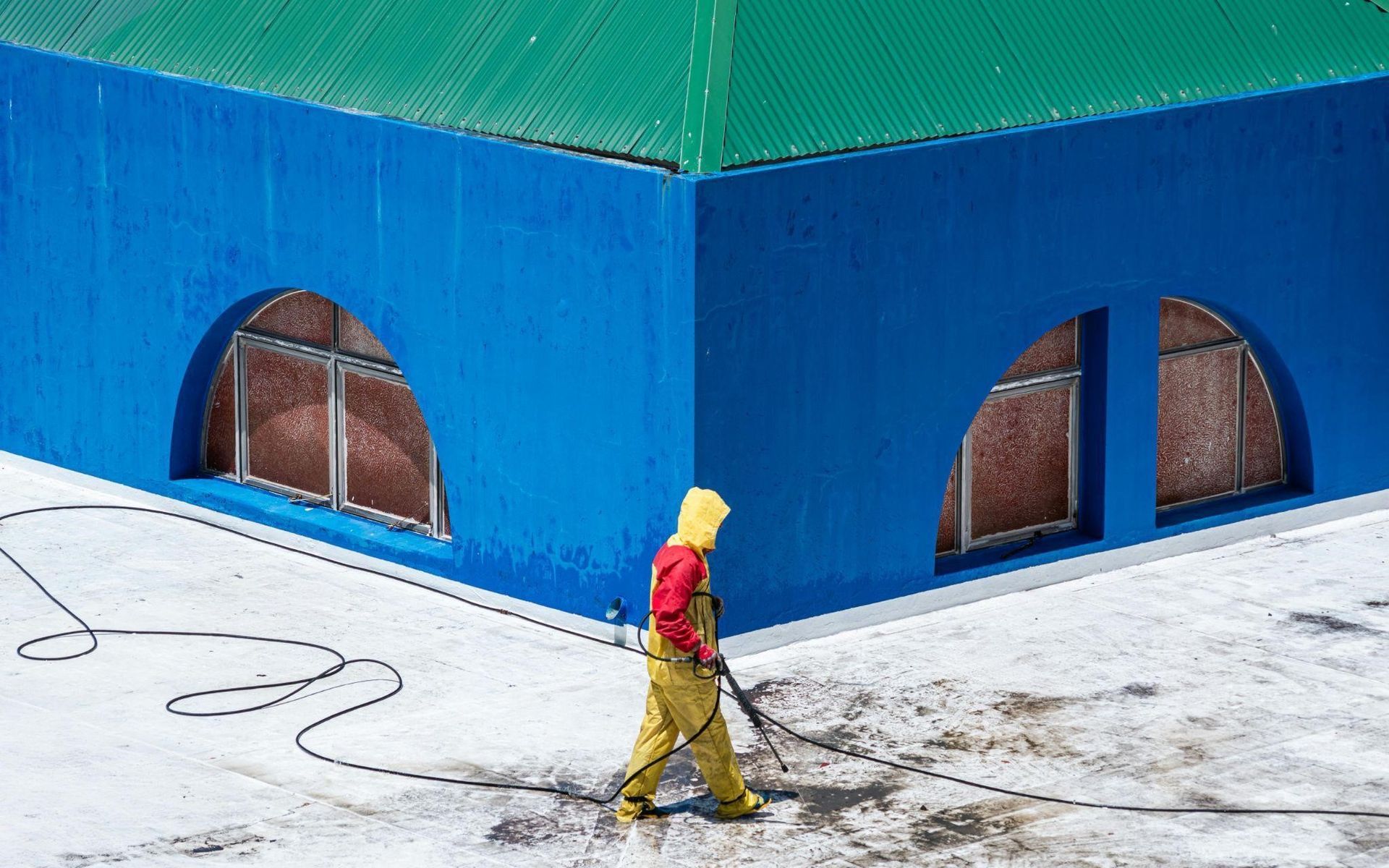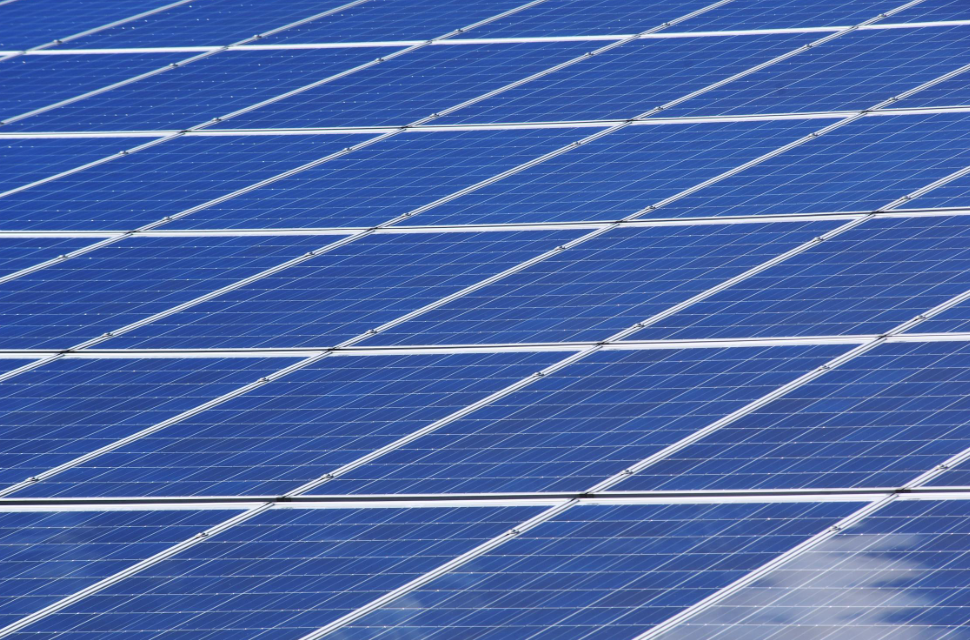Soft Washing for Fences: Protecting Wood and Other Materials
Keeping your fence clean does more than improve the look of your yard. It also supports the overall curb appeal of your property, which can influence how quickly a home sells and the kind of offers it receives. While the National Association of Realtors points out that exterior upgrades play an important role in shaping a buyer's first impression, a well-maintained fence is one of the key visual elements that can enhance that effect.
Since fences are always exposed to the weather, they naturally collect dirt, mildew, algae, and other buildup over time. This not only affects appearance but can also cause long-term damage. Soft washing is a safe and effective way to clean fences thoroughly without harming the material.
In this article, we will take a closer look at how soft washing helps protect and preserve different types of fences, including wood, vinyl, composite, and metal.
What Is Soft Washing
Soft washing is a gentle but powerful way to clean outdoor surfaces. Instead of blasting dirt away with high-pressure water, it uses low-pressure spray combined with eco-friendly cleaning solutions. These solutions break down and remove dirt without damaging the surface underneath.
Unlike regular pressure washing, which can be too harsh for materials like wood or vinyl, soft washing is safe and effective. The cleaning solution is left on just long enough to kill mold and algae at the root, helping keep your fence cleaner for longer.
Benefits of Fence Soft Washing
Soft washing offers several advantages over conventional cleaning methods, including:
- Surface-Safe: Won't cause splintering or erosion, making it ideal for delicate or older fences.
- Deep Cleaning: Effectively kills mold, mildew, and algae at the root, preventing regrowth.
- Long-Lasting Results: Reduces the need for frequent cleaning due to slower regrowth of contaminants.
- Eco-Friendly: Biodegradable detergents and eco-friendly cleaning solutions minimize environmental impact.
- Cost-Effective: Prevents the need for expensive repairs or replacements by keeping fences in good condition.
- Preserves Appearance: Restores the natural appearance of the fence and prevents discoloration, especially in wood and vinyl.
Why Fences Need Special Care
Fences take a beating from the weather every day. Sun, wind, rain, snow, and even air pollution can wear them down over time. This constant exposure can lead to fading, mold, rot, and other kinds of damage. If you live near the coast, salt in the air can speed up corrosion. And if your fence is close to trees or bushes, moisture can build up and lead to faster mold growth.
Taking care of your fence with regular cleaning is the best way to keep it strong, good-looking, and long-lasting.
Common Fence Materials Affected
Fences come in various materials, each with different cleaning needs. Here's a breakdown of common materials and how they are affected by the elements:
- Wood: Wood is a porous material that readily absorbs moisture. It is prone to rotting, warping, cracking, and mold growth. Without proper care, wood can deteriorate quickly, losing its structural integrity and aesthetic value.
- Vinyl: Vinyl fences are popular for their low maintenance, but they are still susceptible to environmental pollutants. Vinyl is also prone to fading from prolonged exposure to UV rays.
- Composite: Composite fences are made from a blend of wood fibers and plastic. While they are durable and low-maintenance, composite fences can still suffer from mold growth in crevices and discoloration over time if not properly cleaned.
- Metal: Metal fences are prone to rust and oxidation. Moisture, dirt, and pollution contribute to corrosion, leading to the need for regular cleaning and maintenance.
Soft Washing for Wooden Fences
Wooden fences are especially prone to damage because wood naturally absorbs moisture. This makes them more vulnerable to problems like rot, fungus, and insect infestations. Using high-pressure washing to clean wooden fences can actually make things worse. The powerful water can push moisture deep into the wood, causing cracks, splinters, and further damage.
How Soft Washing Protects Wood
Soft washing is the best way to clean wood fences. It gently removes dirt and mold without forcing moisture deep into the wood, which helps prevent cracking and further harm. The special cleaning solution also sanitizes the surface, helping to maintain the wood's natural color and keep it strong for longer.
Best Wood Fence Cleaning Tips
- Inspect Before Cleaning: Prior to soft washing, inspect the fence for signs of damage, such as loose boards, deep cracks, or areas of rot. Address any issues before starting the cleaning process.
- Use the Right Cleaning Solution: Select a biodegradable, non-toxic detergent formulated for wood surfaces. Harsh chemicals can discolor wood and may be harmful to nearby plants or pets.
- Seal and Protect After Cleaning: Once the fence is cleaned, consider applying a protective sealant or wood stain to help prevent moisture damage and protect the fence from future mold growth.
Soft Washing for Other Fence Materials
Soft washing also works well for materials such as vinyl, composite, and metal.
Vinyl Fences
Vinyl fences are popular for their modern look and easy maintenance, but they can still suffer from stains, algae, and discoloration, particularly in humid or shaded areas. In coastal regions, salt air can even cause a yellowish tint due to algae and salt buildup.
Soft washing gently removes stains and buildup without harming the vinyl, unlike pressure washing, which can scratch the surface. This method helps maintain the fence’s original appearance while keeping it strong and durable.
Safe cleaning for materials
Soft washing is the best way to clean vinyl fences safely and effectively. The cleaning solution gently lifts dirt, algae, and stains, restoring the fence’s brightness without damaging the surface. The low-pressure water ensures the vinyl stays smooth, while the biodegradable detergent tackles even the toughest stains.
Composite Fences
Composite Fences are a popular choice among homeowners who want a fence that looks great year-round with minimal effort. That said, composite fences can lose their visual appeal due to environmental buildup like pollen, air pollution, and grime from nearby landscaping. Routine soft washing not only keeps the fence looking clean but also helps preserve its color and surface finish, especially in shaded or heavily planted areas.
Soft Washing Method
Composite fences may be tough, but they still need the right kind of care to stay looking their best. Soft washing offers a safe and effective way to freshen up the surface without using abrasive tools or high-pressure water. This method is especially useful for reaching the textured grooves and patterns that give composite fences their natural look.
Metal Fences (Aluminum, Wrought Iron)
Metal fences, such as those made from wrought iron or aluminum, require regular maintenance to keep their structural integrity intact. Over time, exposure to moisture and pollutants can lead to rust and oxidation, which, if left unchecked, can compromise the fence’s strength and appearance.
Soft Washing Benefits
Soft washing gently breaks down organic materials, while the low-pressure rinse ensures the metal remains undamaged. After cleaning, it’s ideal to apply a protective rust-resistant coating or paint to help prevent corrosion and maintain the fence's durability.
Environmental and Safety Considerations
When performing soft washing, it's important to be mindful of the environment and the safety of surrounding areas.
Eco-Friendly Detergents
When selecting soft washing products, always go for biodegradable detergents that are gentle on the environment. Environmentally safe products will give you peace of mind that you’re taking care of both your fence and the planet.
Runoff Management
To prevent cleaning water from affecting your lawn or entering storm drains, use absorbent materials like tarps or containment barriers. This simple step helps ensure your cleaning process is responsible, protecting your landscape and local ecosystem from unwanted pollutants.
DIY vs. Hiring a Professional
When deciding between DIY soft washing or hiring a professional, consider the scale of the project, your experience, and the condition of your fence. Here’s when each option makes sense:
When to Do it Yourself
- Smaller areas or minor dirt buildup
- Access to soft washing equipment
- A basic understanding of the cleaning process and safety precautions
When to Hire a Professional
- Large or heavily stained fences
- Multiple material types requiring specialized care
- Areas with limited access or hard-to-reach spots
- The need for advanced cleaning solutions and techniques
Hiring a professional guarantees a thorough and safe cleaning for your fence. With their expertise and access to commercial-grade equipment, they can achieve superior results in less time.
Maintenance Tips After Soft Washing
Regular maintenance is essential after soft washing. Here are some tips for maintaining different fence materials:
Frequency of Cleaning
- Wood: Clean every 1-2 years to prevent mold buildup.
- Vinyl and Composite: Clean annually or as needed.
- Metal: Clean every 1-2 years and inspect for rust.
Preventive Measures
- Trim back vegetation that could trap moisture against the fence.
- Clean gutters to prevent debris and water runoff from affecting the fence.
- Apply protective coatings after cleaning to keep your fence looking new.
A Little Effort, Big Payoff
Maintaining your fence doesn’t have to be a chore. With soft washing, you're not just keeping your fence clean but investing in its longevity.
So, next time you look at your fence, think of it as a small project that keeps your outdoor space looking great and adds value for years to come!






